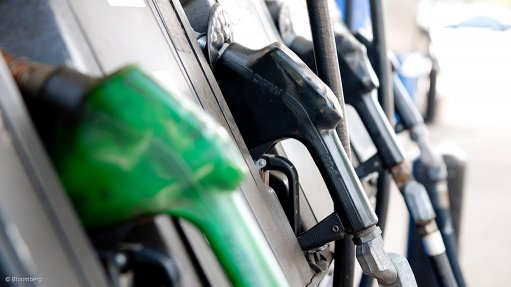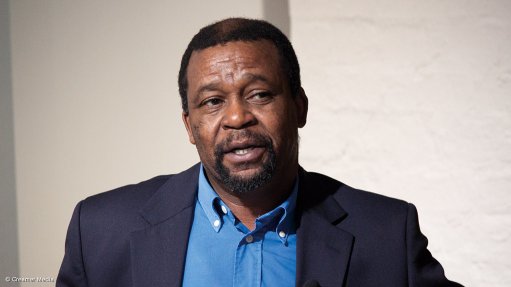Growth in global oil demand set to slow significantly by 2028, report shows
Growth in the world’s demand for oil is set to slow in the coming years, with the high prices and security of supply concerns highlighted by the global energy crisis hastening the shift towards cleaner energy technologies, a new report released by global energy authority the International Energy Agency (IEA) shows.
The ‘Oil 2023 Medium-Term Market’ report forecasts that, based on current government policies and market trends, global oil demand will rise by 6% between 2022 and 2028 to reach 105.7-million barrels a day – supported by robust demand from the petrochemical and aviation sectors.
Despite this cumulative increase, yearly demand growth is expected to slow from 2.4-million barrels a day this year to just 400 000 bbl/d in 2028, putting a peak in demand in sight.
In particular, the use of oil for transport fuels is set to go into decline after 2026 as the expansion of electric vehicles, the growth of biofuels and improving fuel economy reduce consumption.
“The shift to a clean energy economy is picking up pace, with a peak in global oil demand in sight before the end of this decade as electric vehicles, energy efficiency and other technologies advance.
“Oil producers need to pay careful attention to the gathering pace of change and calibrate their investment decisions to ensure an orderly transition,” says IEA executive director Fatih Birol.
Global oil markets are still slowly recalibrating after three turbulent years in which they were upended first by the Covid-19 pandemic and then by Russia’s invasion of Ukraine, the IEA outlines.
The global energy crisis triggered by the war in Ukraine has resulted in an unprecedented reshuffling of global trade flows. Global oil markets could tighten significantly in the coming months, as production cuts by the Organisation of the Petroleum Exporting Countries (OPEC) alliance temper an upswing in global oil supplies, the authority indicates.
However, the multifaceted strains on markets look set to ease in the following years, according to the report.
China was the last major economy to lift its stringent Covid-19 restrictions at the end of 2022, leading to a post-pandemic oil demand rebound in the first half of this year.
However, demand growth in China is forecast to slows markedly from 2024 onwards. Nevertheless, burgeoning petrochemical demand and strong consumption growth in emerging and developing economies will more than offset a contraction in advanced economies, the IEA indicates.
It notes that global upstream investments in oil and gas exploration, extraction and production are on course to reach their highest levels since 2015, growing 11% year-on-year to $528-billion in this year.
While the impact of higher spending will be partly offset by cost inflation, this level of investment, if sustained, would be adequate to meet forecast demand in the period covered by the report.
However, it exceeds the amount that would be needed in a world that gets on track for net zero emissions.
The report’s projections assume major oil producers maintain their plans to build up capacity even as demand growth slows.
This is expected to result in a spare capacity cushion of at least 3.8-million barrels a day, concentrated in the Middle East.
The report nonetheless notes a number of factors that could affect market balances over the medium term – including uncertain global economic trends, the direction of OPEC decisions and China’s refining industry policy.
Oil producing countries outside the OPEC alliance dominate plans for increasing global supply capacity in the medium term, with an expected rise of 5.1-million barrels a day by 2028 led by the US, Brazil and Guyana.
Saudi Arabia, the United Arab Emirates and Iraq lead the plans for capacity building within OPEC, while African and Asian members are set to struggle with continuing declines, and Russian production falls owing to sanctions.
This makes for a net capacity gain of 800 000 bbl/d from the 23 members in OPEC+ overall over the report’s forecast period.
In the refining sector, the overhang in global capacity has been reduced by waves of closures, conversions to biofuel plants and project delays since the pandemic.
This, combined with a sharp drop in Chinese oil product exports and an upheaval of Russian trade flows, resulted in record profits for the industry last year.
While the amount of net refinery capacity additions by 2028 is expected to outpace demand growth for refined products, diverging trends among products means that a repeat of the 2022 tightness in middle distillates cannot be ruled out, the IEA avers.
Comments
Announcements
What's On
Subscribe to improve your user experience...
Option 1 (equivalent of R125 a month):
Receive a weekly copy of Creamer Media's Engineering News & Mining Weekly magazine
(print copy for those in South Africa and e-magazine for those outside of South Africa)
Receive daily email newsletters
Access to full search results
Access archive of magazine back copies
Access to Projects in Progress
Access to ONE Research Report of your choice in PDF format
Option 2 (equivalent of R375 a month):
All benefits from Option 1
PLUS
Access to Creamer Media's Research Channel Africa for ALL Research Reports, in PDF format, on various industrial and mining sectors
including Electricity; Water; Energy Transition; Hydrogen; Roads, Rail and Ports; Coal; Gold; Platinum; Battery Metals; etc.
Already a subscriber?
Forgotten your password?
Receive weekly copy of Creamer Media's Engineering News & Mining Weekly magazine (print copy for those in South Africa and e-magazine for those outside of South Africa)
➕
Recieve daily email newsletters
➕
Access to full search results
➕
Access archive of magazine back copies
➕
Access to Projects in Progress
➕
Access to ONE Research Report of your choice in PDF format
RESEARCH CHANNEL AFRICA
R4500 (equivalent of R375 a month)
SUBSCRIBEAll benefits from Option 1
➕
Access to Creamer Media's Research Channel Africa for ALL Research Reports on various industrial and mining sectors, in PDF format, including on:
Electricity
➕
Water
➕
Energy Transition
➕
Hydrogen
➕
Roads, Rail and Ports
➕
Coal
➕
Gold
➕
Platinum
➕
Battery Metals
➕
etc.
Receive all benefits from Option 1 or Option 2 delivered to numerous people at your company
➕
Multiple User names and Passwords for simultaneous log-ins
➕
Intranet integration access to all in your organisation


















